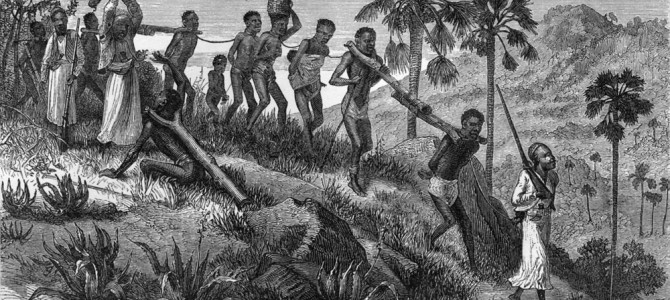In a recent review of “The Half Has Never Been Told: Slavery and the Making of American Capitalism” by Edward Baptist, The Economist published a now-infamous review that included this disastrous sentence: “Mr Baptist has not written an objective history of slavery. Almost all the blacks in his book are victims, almost all the whites villains.”
The magazine apologized for the review, but it isn’t the first time we’ve seen this formulation in its pages. And the first appearance probably helps explain the second.
The Economist’s apology states that, “Slavery was an evil system, in which the great majority of victims were blacks, and the great majority of whites involved in slavery were willing participants and beneficiaries of that evil.” And this seems to be a perfect way to describe the Atlantic slave trade.
But as I was browsing The Economist site on the suddenly topical subject of slavery, I ran across a review of a book called “The Empire of Necessity: Slavery, Freedom, and Deception in the New World” by leftist historian Greg Grandi. In it we have this paragraph:
As well as correcting the factual errors in Melville’s book, Mr Grandin uses Captain Delano’s account of this and other incidents to explore the complexities and ambiguities of the Atlantic slave trade. It was not just, as is commonly supposed, a matter of white villains and black victims. The crews of naval and merchant fleets of the time included “men of colour”—even, in a few instances, as captains.
Same author? Probably.
For the most obvious reasons, the Baptist review is offensive. This one, I think less so, as it dives into the expanded history of anti-slavery activism – Wilberforce, etc. It is grimace-worthy, though, to hear someone claim that it is “commonly supposed” there were no black villains in the story of slavery. I’m certainly no expert, but I’ve never read a single historical account that makes any such a claim. Nor have I read “The Empire of Necessity.” Judging from the reviews and descriptions I have read, however, it’s probably safe to assume that the main purpose of a book about a famous slave rebellion was not to point out that we’re always forgetting about the black villains. It was the point of nearly the entire review.
With all that said, there are way too many people who way too easily offended by an undiplomatic take on history. In this case, though, there is a case.
Imagine, for instance, this sentence in a review: “Mr Jones has not written an objective history of the Holocaust. Almost all the Jews in his book are victims, almost all the Germans villains.”
Or:
“It was not just, as is commonly supposed, a matter of German villains and Jewish victims.”
Though it is true that some Germans did not participate in any anti-Semitic activities, and some even helped Jews, without some serious context, reiterating this same point twice in such an unsophisticated manner would likely be viewed as insulting to Jews.
Now, if we were to give the unnamed author the benefit of the doubt, and use the earlier review of Grandi as a guide, one imagines he or she was implying that the slave trade was a complex and multi-continental effort that had plenty of bad guys. We must also assume that a writer (not to mention editors) working at a prestigious magazine like The Economist has the ability to make the point in a less ham-fisted way.
Follow David Harsanyi on Twitter.









